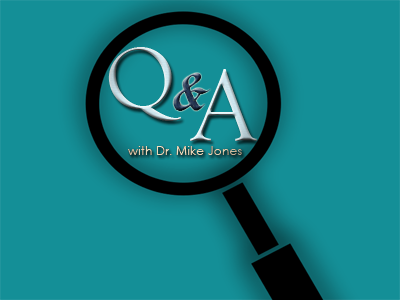Q: WHAT IS THE DIFFERENCE BETWEEN THE “UNPARDONABLE SIN” AND THE “SIN UNTO DEATH,” BASED ON HOW RAMPANT SIN HAS BECOME?
A: I believe the Bible is clear as to what the “unpardonable sin” makes reference to. It is the “blasphemy of the Holy Spirit” as mentioned in Mark 3:22-30, “But the teachers of religious law who had arrived from Jerusalem said, “He’s possessed by Satan, the prince of demons. That’s where he gets the power to cast out demons.” Jesus called them over and responded with an illustration. “How can Satan cast out Satan?” He asked. “A kingdom divided by civil war will collapse. Similarly, a family splintered by feuding will fall apart. And if Satan is divided and fights against himself, how can he stand? He would never survive. Let Me illustrate this further. Who is powerful enough to enter the house of a strong man and plunder his goods? Only someone even stronger—someone who could tie him up and then plunder his house. “I tell you the truth, all sin and blasphemy can be forgiven, but anyone who blasphemes the Holy Spirit will never be forgiven. This is a sin with eternal consequences.” He told them this because they were saying, “He’s possessed by an evil spirit.”
And in Matthew 12:22-32, “Then a demon-possessed man, who was blind and couldn’t speak, was brought to Jesus. He healed the man so that he could both speak and see. The crowd was amazed and asked, “Could it be that Jesus is the Son of David, the Messiah?” But when the Pharisees heard about the miracle, they said, “No wonder He can cast out demons. He gets his power from Satan, the prince of demons.” Jesus knew their thoughts and replied, “Any kingdom divided by civil war is doomed. A town or family splintered by feuding will fall apart. And if Satan is casting out Satan, he is divided and fighting against himself. His own kingdom will not survive. And if I am empowered by Satan, what about your own exorcists? They cast out demons, too, so they will condemn you for what you have said. But if I am casting out demons by the Spirit of God, then the Kingdom of God has arrived among you. For who is powerful enough to enter the house of a strong man and plunder his goods? Only someone even stronger—someone who could tie him up and then plunder his house. “Anyone who isn’t with me opposes me, and anyone who isn’t working with me is actually working against me.
“So I tell you, every sin and blasphemy can be forgiven—except blasphemy against the Holy Spirit, which will never be forgiven. Anyone who speaks against the Son of Man can be forgiven, but anyone who speaks against the Holy Spirit will never be forgiven, either in this world or in the world to come.”
It is when someone accuses the power or working of the Holy Spirit through someone, as the working or power of Satan; basically, cursing God or willfully degrading things relating to Him. Not only is this true today, but we see it plainly in scripture, when our Lord Jesus was accused of being demon-possessed, while working various miracles, throughout the four gospels.
The sin unto death has been debated by noted scholars and theologians, and yet they could not pin-point an exact sin, the consensus was expressed in this paragraph: “In 1 John 5:14-17, the Apostle is possibly referring to a believer. According to this view, the sin leading to death refers to a Christian’s sin that is so serious that God takes the life of the one committing it. He put to death Ananias and Sapphira when they lied to the Holy Spirit in front of the church (Acts 5:1–11). Paul wrote to the Corinthians concerning those who were abusing the Lord’s Table, “For this reason many among you are weak and sick, and a number sleep [have died]” (1 Cor. 11:30). The sin is not one particular sin, but any sin that the Lord determines is serious enough to warrant such severe chastisement.”
Thanks for the question: And I hope this brings some clarity.
Dr. Mike

